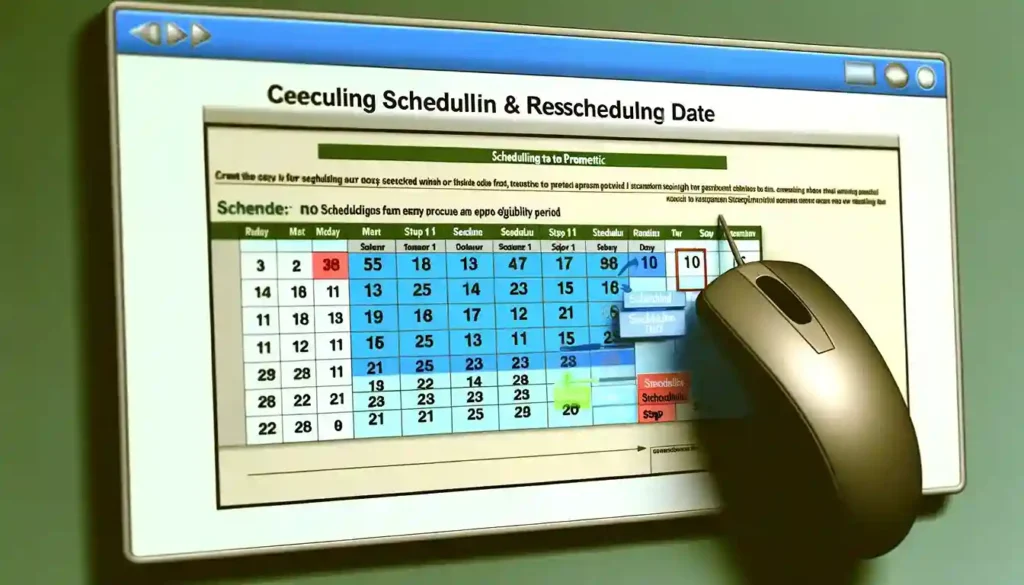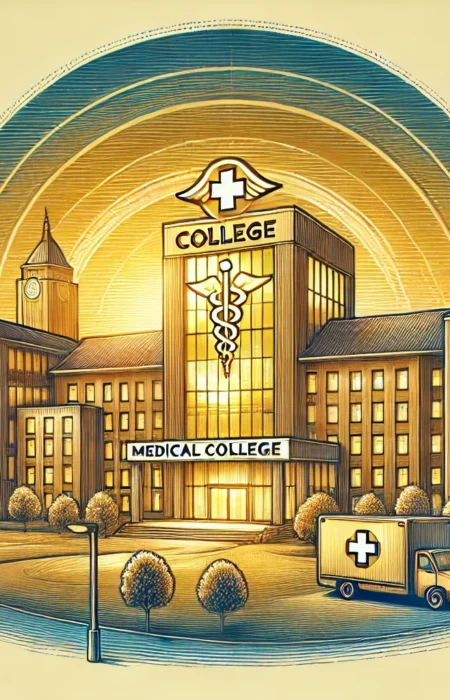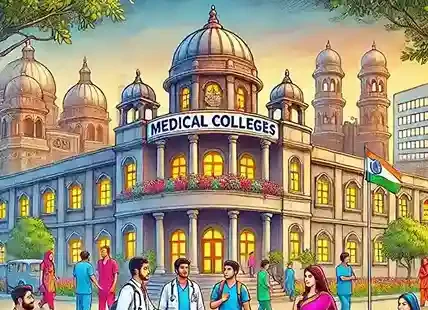When should you take USMLE Step 1 as an IMG?
When is the STEP 1 exam taken?
USMLE Step 1 is an important exam for medical graduates aspiring to practice in the US, testing all of the fundamental concepts essential for practicing medicine successfully. I
International Medical Graduates (IMGs) (if you are from India) need to take the USMLE Step 1 exam to start your exam process.
Passing the USMLE exam does not only involve passing it, but doing it in a manner that meets your career aspirations and residency application timeline.
When does the Step I Exam 2024 happen? – During medical school or after?
Exams for ECFMG certification are held year-round and it’s important that you feel secure about your knowledge before taking it.
Start preparing for the USMLE Step 1 exam as early as your medical school studies commence.
Let us be your guide to help you how to do that.

Understanding USMLE Step 1
USMLE Step 1 places emphasis on understanding and applying basic science facts to medicine rather than memorization, covering subjects such as anatomy, biochemistry, microbiology, pathology, pharmacology, and physiology among others. Very clinical questions are asked in the USMLE exam. You have to know everything. For eg, if a clinical question on a drug is asked, you have to know it’s mechanism of action, side effects, which disease it is used for , etc. Then you have to use all this knowledge and solve the clinical questions.
Recent years have seen an important change from numerical scoring systems to pass/fail systems.
USMLE Step 1 result is now just a Pass/ Fail exam. No numerical score will be given. So it is relatively easier than Step 2.
This shift has important consequences for IMGs; now the importance has shifted toward clinical experience, letters of recommendation, and other residency application factors beyond exam scores as criteria for residency matchingand selection.

Scheduling USMLE STEP 1
Unlike many exams you can take, the USMLE Step 1 doesn’t have a set date or timetable for taking the test.
Like NEET UG, there is not one date when the exam will take place. You get the option to choose the 3 months in which you want to take the exam. Like, if you choose Oct- Nov- Dec, you will get one date in this 90-day period, when you will give your exam.
Prometric is the NBME’s testing partner. It allows you to book exams up to six months in advance.
Rescheduling of exams through Prometric is possible at any time, though an additional fee applies.
Your only restriction in scheduling an exam within your 3-month eligibility window is selected during registration. Choose this period at a time when it is easy for you. If you are taking the exam in 3rd year, make sure that it is not tough for you to manage your MBBS studies with the USMLE exam.
Schedule or reschedule your USMLE Step 1 exam whenever it suits your schedule; however, for optimal results, it should be scheduled as soon as you know which test date suits you best.
Testing center availability varies significantly by city. Prometric centers in large metropolitan areas and medical school-heavy regions may quickly run out of appointments for prospective examinees if multiple students attempt to take an exam simultaneously. So ensure you book your test well in advance to avoid delays.
As such, many students choose to take their exams in different places such as their hometowns or centers outside major cities with more accessible appointment slots.
Notably, Prometric provides other tests beyond USMLE; therefore availability may depend on other test takers.

Optimal Timing for Indian Medical Graduates
Indian Medical Graduates should plan for the right timing to complete their residency programs successfully.
Timing for taking USMLE Step 1 can vary, though generally corresponds with completion of preclinical studies in India.
Candidates usually take the exam after the second or during third year of medical school.
Preparing for the USMLE while managing medical school responsibilities needs an organized strategy, matching USMLE study plans with the academic calendar in India.
This allows students to use basic sciences studies while giving sufficient time to USMLE preparation without a lot of tension.
Indian medical school students tend to favor two timelines for USMLE STEP 1 exams- After the second year or during the internship.
STEP 1 must be passed either during the second year or internship experience.
During Med School
This is the preferred timeline for the USMLE Step 1.
- The USMLE Step 1 exam is typically taken after the second year of medical school. This exam covers all preclinical and paraclinical subjects taught during these two years. It gives you time to revise and memorize the material without feeling as overwhelmed by learning new concepts.
- Additionally, undertaking their exam after their second year allows students more free time before beginning clinical years.
- Since these subjects will form the foundations of your medical knowledge, it is important that you fully understand them to be better able to understand more advanced subjects during clincal years of medical school.
- Students should begin preparations for the USMLE Step 1 early, using appropriate materials and building a solid conceptual base.

After Completing the MBBS
There are a few disadvantages to taking the USMLE Step 1 exam after graduation.
- After graduating medical school, motivation can become even harder to come by. You might feel exhausted as well as eager to start your residency training; taking the Step 1 exam after graduation may prove even harder as you must find the motivation to study for such a long and rigorous test while simultaneously starting your new non-academic residency job.
- After graduating, revisiting your pre-clinical and paraclinical year subjects can be difficult; these courses serve as the basis of your third and fourth years (clinical years). Revisiting them afterwards can quickly lead to boredom or disinterest.
- It can be more expensive. If you take the Step 1 exam after graduation, you will have to pay for the exam yourself. This can be a significant expense, especially if you are also paying for your residency.
- Finding residency positions can be challenging, and certain residency programs may give preference to applicants who took the Step 1 exam during medical school as they believe these applicants have a better grasp of the material and are therefore more likely to succeed during residency. This reason is not as important, however.
However, there are also some advantages to taking the Step 1 exam after graduation.
- This will allow you time for greater study. By waiting to take the Step 1 exam after graduation, you will have more time to devote to preparation for it and ensure you’re thoroughly ready. This could prove especially helpful if a topic or subject matter is challenging you; taking more time can only serve to your benefit!
- Experience is important – having graduated from medical school will equip you with more clinical experience, which will be invaluable when studying for the Step 1 exam and applying clinical knowledge to the questions asked.
Decisions on whether or not to take the Step 1 exam post -graduation should ultimately be left up to each individual student, taking into account both advantages and disadvantages before arriving at their best choice.
Preparing for USMLE Step 1 as an IMG
Effective preparation requires a systematic approach that incorporates resources customized to the needs of IMGs. High-quality review materials, question banks, and online courses are required. Gaining clinical experience is also vital, as it may be obtained through clerkships and externships in the United States. This experience not only broadens your understanding of clinical medicine but also improves your residency application.
Read out 10 tips to ace the USMLE blog here to perform better in the exam.

Factors to Consider
Academic Preparation
Mastery of Basic Sciences is essential. Evaluate your readiness and identify areas where improvement may be needed. 1st and 2nd year subjects should be studied regularly for testing purposes while clinical question patterns presented on the USMLE should also be practiced. USMLE requires you to be very efficient at diagnosing. So, clinical question practice should be mastered.
Clinical Experience
Gain experience through clinical rotations and hands-on experiences that apply your medical knowledge directly in real world situations. Your LORs play a pivotal role in matching successfully into residency programs – so get at least 3 great LORs that could significantly increase your odds.
Application Timeline
Plan your exam date in consideration of residency application deadlines to ensure your scores are available when needed. Starting in 3rd year can give you a headstart. If you are taking STEP 1 after passing graduation, the timeline becomes very important.
Personal Circumstances
Balancing preparation efforts with your personal commitments and financial concerns to ensure a pleasant journey. USMLE is expensive for a large number of students. Furthermore certain students may want to go away from their families. So, take all of these aspects into consideration prior to making any preparations. Education loans could be the answer that you require
Benefits of Early Preparation
Starting early in second or third year can offer several advantages, including deeper knowledge of medical sciences and an easier preparation process.
Early starters tend to enjoy greater flexibility in managing their study schedule and can integrate their USMLE preparation into their medical school curriculum, leading to stronger overall applications.
Experience helps build rapport and increase the chances of finding match.
Challenges Faced by IMGs
Indian Medical graduates often have specific challenges when taking the USMLE for example, understanding the format of its questions and how to integrate the preparation into their medical school obligations.
The USMLE questions are designed around scenarios from clinical practice. Questions tend to be long and require a lot of time to read. In addition multiple choice formats can offer more than four options for each question.
This is different from the NEET PG questions where questions are based exclusively on factual information.
The solutions could involve joining study group on Telegram or other platforms, taking part in online forums, or using tools specifically designed for IMGs. Your resources should be savvy to make learning more engaging using visual and mnemonic resources. These have proved to be particularly helpful for USMLE preparation and for passing medical school tests

Additional Resources
For further support, consider exploring the following resources:
- UWorld: Renowned for its question banks and explanations.
- First Aid for the USMLE Step 1: A must-have book resource for comprehensive review.
- Pathoma : An excellent guide for Pahtology.
- Sketchy Medical: My favourite Mnemonic based resource.
- ECFMG: Essential for IMGs to understand the certification process.
- Online forums like Reddit’s r/step1 and Student Doctor Network offer community support and advice.

Indian medical students can improve the chances for USMLE step 1 success and begin rewarding careers in the medical field in America through these resources, and adhering to an organized and well-planned preparation plan.






